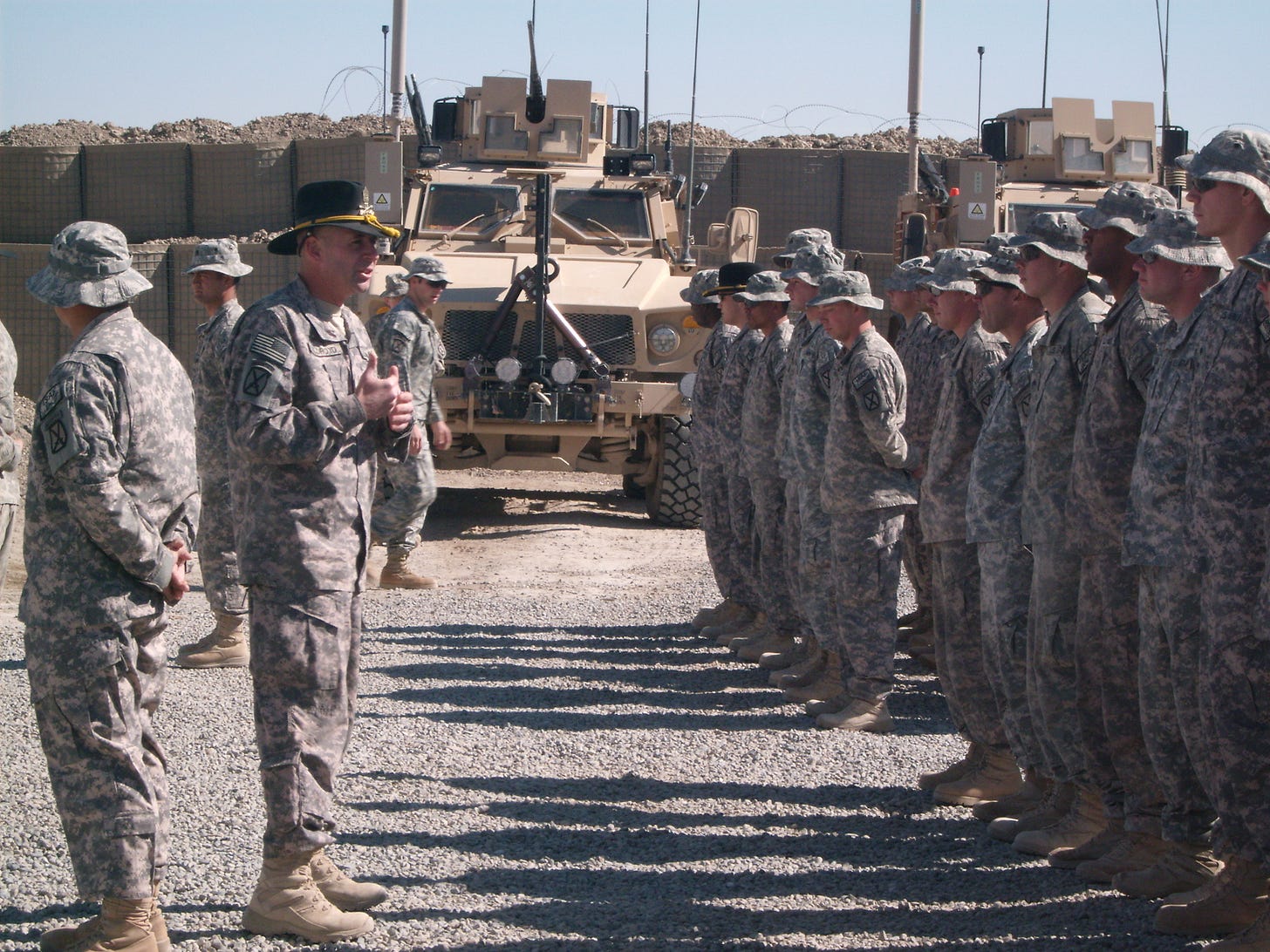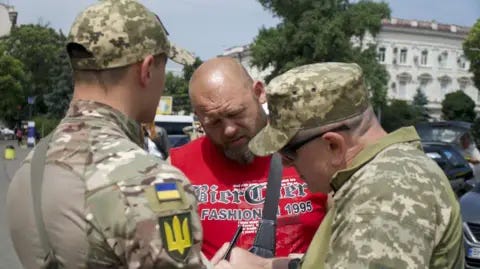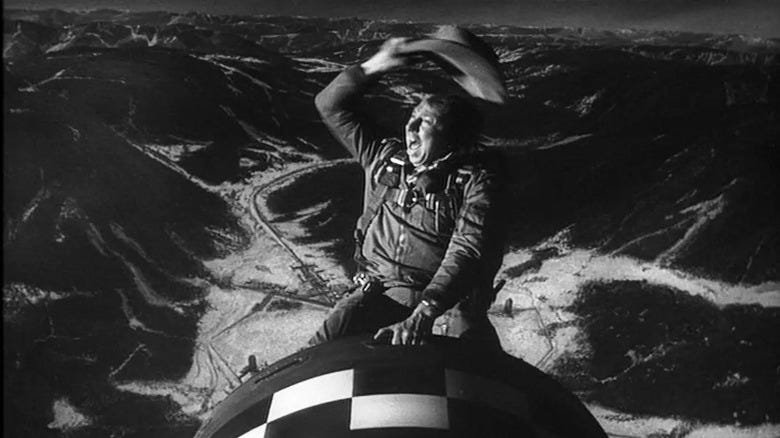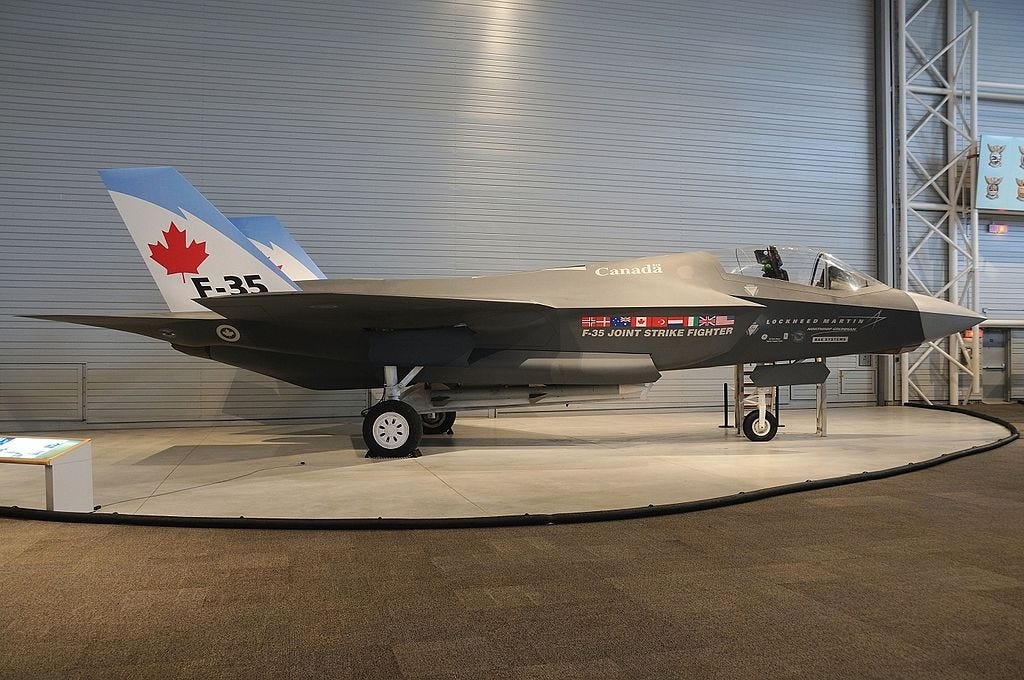The world is changing under our feet. Canada finds itself in a crisis like no other it has seen in its history over Trump’s annexation threats. The notion of American invasion, once a fairytale, now looms large over the election campaign.
If there is one thing that unites the Liberals and Conservatives in this election, it’s that the Canadian Armed Forces (CAF) must be strengthened, and that Canada must increase military spending to meet with the NATO 2% requirement.
The question is: why?
The CAF vs the USA

The Canadian military has a long and storied history of being wildly unprepared for conflicts it is sent into by Canadian political leadership. When the Canadian Expeditionary Corps arrived in Flanders in 1915, they were equipped with compressed paper soled boots that melted, and Ross rifles that jammed when exposed to dirt. The beginning of the Second World War saw Canadians equipped for the first, and insufficiently at that. The war in Afghanistan saw the CAF deploy to a desert in green camouflage. Improvise and make do has always been the order of the day.
However, the implication that, in the face of American threats, the CAF will once again improvise and make do its tantamount to murder. This is a fight the CAF cannot win. When Trump says, “Canada doesn’t have the cards,” he’s unfortunately completely correct.
The CAF is equipped and trained for fighting inferior forces, what is known as “near peer.” No military scenario of note involves the Canadian Army fighting an enemy that has air supremacy, nor is there one in which we fight massed enemy armour without allies.
The CAF lacks even the most basic equipment to engage enemy aircraft, except for our decidedly rickety CF-18 fleet, and our potential F-35s. Even if we have the latter operational, the US owns several key components of them that they can switch off, so that counter, we can safely say is non-credible. If any aircraft were operational and armed to meet the threat, they would be struck on the ground before hostilities opened, and they (to my knowledge), do not have hardened shelters to protect from such an eventuality. Furthermore, if there is any sign of them taking off, the runways of Bagotville, Cold Lake and Trenton would be cratered by land attack cruise missiles (LACMs) as an opening step in hostilities.
Almost our entire population is within easy reach of American long-range firepower, and we have no defense against it. The USAF could launch strikes from within the continental USA and hit Canadian vital targets and there is nothing we could do about it.
There would be no role for our Navy in any operations against the USA. Once again, it is wholly dependent on allies such as the Americans for basic fleet operations and is essentially a defensive counter to submarines. The most they could offer would be a small air defense package for the ports of Halifax, Vancouver and Victoria. Most of our submarines are broken, and these would have very limited effect on the balance of power.
The Canadian Army, thus, would be the only branch of the military with a role, but what could they actually do? They’d be heavily outgunned, but also heavily outmaneuvered by helicopters and aircraft deployments. The country is enormous, so they’d have to choose either a single point to defend (Ottawa or Halifax) or spread out and defend multiple locations. The former would see them dismantled by airstrikes and would find it nigh-impossible to move those forces to the key locations unhindered. The later would diffuse resistance and allow them to be encircled or overwhelmed.
In terms of help from afar: there won’t be any. Were the entire European community to find a backbone, how will they get here? The US Navy is more powerful than all the navies of the entire rest of the world combined, and they would be unlikely to serenely allow us to receive massive reinforcements in troops or matériel. Same applies to air reinforcement. Europe would be presented not with a beleaguered frontline to reinforce, but a fait accompli.
A key purpose of any war is knowing why you are fighting it. If the CAF cannot win and will not receive reinforcements, then it is a pointless war and it should not be fought. This is not a judgment of the cause, but the material conditions of the conflict. No conventional war with the USA should ever occur with the power imbalances we have.
Generations of Canadian politicians sold our entire defense to the goodwill of Americans. For the short-medium term, the CAF cannot actually credibly defend Canada from the only existential threat Canada faces. If the Americans were to cross the border tomorrow, the best thing the CAF could do is make a show of surrender while burying arms for an insurgent campaign.
A seat at NATO

The main reason, it seems, that the political parties are using to justify this increased spending, is NATO. NATO is the organization stipulating the 2% GDP expenditure, and Canada wants a seat at the table. This is incoherent, head-in-the-stars wishful thinking.
NATO is an American alliance, made by them, for their interests, and redundant without them. Far from the “defensive alliance,” it claims to be, it is a tool of American Imperialism. There is no provision in the NATO charter for the founding member attacking its allies. Even were there one, even if the above imbalance was not so, would the other member-states pick us over the USA? Hardly.
Increasing the military budget is useless without being able to staff the military. The CAF has been struggling with meeting the current staffing levels. Where are all these new recruits going to come from? There has been much talk of conscription lately1, with the latest coming from The Tyee today. I’ve already written about the profound threat to young people represented in conscription, but the problem is if not that, then what? Pay rises and the like are an option, but given that the CAF is one of the best paid militaries in NATO already, that is unlikely drastically alter the situation.
The CAF has been working on culture change to address the sexual misconduct in the wake of the 2015 external review. It will remain to be seen if the efforts have been sufficiently effective to see a corresponding increase recruiting.
The threats from the USA may also cause a spike in recruitment, but once again, it’s a matter of how much. The budget increases proposed will likely see a significant expansion of the CAF in terms of capabilities and likely staffing. This is a tough ask for a military struggling to recruit members for it establishment strength.
The CAF budget for 2024-25 is approximately $26 billion. Increasing spending to 2% of GDP could mean a near doubling of that figure. Rounding the figures, we can therefore expect, under this plan, to expend an addition $20 billion on a military that will still be wholly inadequate to defend Canada from its only existential threat.
If NATO even still exists in 2030 (the proposed date to hit 2%), which itself is by no means certain, we would have spent an enormous amount of taxpayer dollars in order to possess a military that is still, equipped, trained and dedicated to ‘Near Peer’ warfare. For the sake of an imperialist foreign power that is currently threatening us.
How undignified.
Better uses of taxpayer dollars
$20 billion is a lot of cheddar. The things we could do with that sum of money for the Canadian people is enormous. Think about the hospital wait times, the housing crisis, the unemployment that the trade war is already causing, or the underdevelopment of Indigenous communities in the north. Young adults can’t afford homes, but we have the money to spend on American made F-35s that will shut down on us in the event of war?
We don’t, actually; that money has to come from somewhere. Between this and tax cuts for the rich, we see clearly an austerity budget, funding a military that can still only notionally defend Canada.
On the other hand, if we rejected this plan and kept the CAF budget where it is, and used that money for social programs, we would actually be more defensible than we are now. In the event of recession, or economic freefall owing to the tariffs, having a robust social safety net could mean the difference between people wanting to stand by Canada and those who would turn to the 51st State to stop the damage. Right now, Canadians are strongly against it, but ask yourself this: would you compromise your values to feed your child?
There are two types of people. Those who answered yes, and liars.
If Canada instead invested that money in robust social programs, housing, etc, then Canadians would have something to contrast the American threats to. The entire purpose of the tariffs is to reduce Canadians to seeing annexation as the only way to improve their lot. This doesn’t work if even after economic damage, Canadians are still better off than our expansionist neighbors.
The Ukraine Scenario

Something that comes up a lot in the online Liberal community is the war in Ukraine. If one simplifies geopolitics enough, then it can be easy to see parallels. A smaller (population) country, threatened by a neighbor it shares a long history of cooperation with, fighting back against the big bad enemy.
Not only does this comparison not consider the decade of tensions stoked by NATO, but it’s also a nightmare. Ukraine is in its third year of a brutal war of attrition they cannot win. At some point there will be a ceasefire, and after three years and potentially a million casualties, they will concede that which was mostly already conceded in the MINSK II agreements, or potentially even more because Russia has expended so much blood and treasure to acquire it.
Ukraine is in ruins. The civil population is tired of war, the army suffering a manpower crisis in spite of widespread and brutal conscription, the economy is wrecked. The Ukrainian people will be broke for decades paying back loans to the EU and USA while they loot the country for its resources.
This is not an outcome to aspire to.
The Nuclear Option

Canada has had a unique relationship with humanity’s most destructive weapons. We are among the small list of nations that have voluntarily rejected the use of nuclear weapons even though we have the capability to manufacture them. At one time during the Cold War, we hosted American nuclear weapons in Canadian bases, and were assigned some for air defense, but we have never owned any. With the threats emanating from the USA, there are those that think this should change.
This is very stupid.
It’s not that nuclear weapons and nuclear deterrence don’t work; they do. In fact, one can make an argument that they are the most effective form of deterrence there is, so far. That’s a big caveat. The USSR detonated RDS-1 in 1949, making a multi-polar nuclear world. Since that time, 76 years have elapsed. That is a very small sample size upon which to gamble nuclear apocalypse.
The other problem with nuclear deterrence, as if gambling with life on Earth was insufficient, is that ones opponent needs to believe we’d use them in order to be a deterrent. Would we? Doubtful.
If we were to use them, we’d need to be willing to irritate ourselves. Nuclear weapons need to be aimed at something, either tactical targets like invasion routes, bases, and troop concentrations, or strategic targets like industrial and political centers. The former would absolutely cause fallout in Canada, and the latter… Are you willing to turn New York, and Washington DC into radioactive glass for the sake of Donald Trump? I’m not, so I won’t advocate for it.
Even if we were willing, able and planning on using nuclear weapons, would the USA accept that we’re building nuclear weapons to be aimed at them? I imagine we’d get Operation Iraqi Freedom’ed long before our first warhead was tested. Even if they didn’t, we’d end up in a nuclear impasse, and no safer than we started.
Credible Defense
So, how does one stop an American juggernaut that decides it’s annexation or bust? The CAF, in order to be effective, would have to radically change the way it does almost everything.
For the near term, prolonged insurgent warfare2 is the solution, the only one that can defeat an American occupier. At this point, to send the CAF to battle is to throw away soldiers who could become the core of an insurgent force. If we go along with this spending increase, if we invest bad money on bad money to reinforce the CAF, we will be no closer to safety than we are today. That doesn’t mean, however, that there are not things the CAF can do.
The way we think about defense must change. We are presented a choice: strategic defense or expeditionary warfare. Right now, the CAF is wholly designed to fight foreign wars against near peer enemies with heavy support from allies, and manifestly incapable of actually defending Canada. To credibly defend Canada, this must change.
The first and foremost, would be a massive expansion of the Reserves. Not only would this decrease costs, but it would also objectively better for Canadian interests. The Canadian Reserves are often used for disaster relief, and with climate change being an ever-present threat, I would argue Reservists that can defend Canada, but more likely to be employed in disaster relief would be better for the Canadian people.
This Reserve expansion (assuming people join up), would be paid for with a complimentary decrease in spending on offensive weaponry. Tanks and the like are useful for an army that can move without being immediately hit by overwhelming air strikes, but that isn’t in the cards. We don’t need tanks; we need equipment that can kill tanks.
No amount of reasonable Air Force investment will stop the Americans from wiping it out on day one, so it’s a waste to have it. We don’t need planes; we need equipment to kill planes. Surface to air missiles (SAMs) have dominated the battlefield of Ukraine, and others. They are much cheaper than aircraft, they can be mobile or fixed, they can provide an umbrella under which military operations can be conducted in relative safety. Entirely new doctrines must be written with enemy air power controlling the skies in the fore.
Similarly, the Navy will have to change. Arctic sovereignty is often thrown around in this context, but the CAF is currently barely able to exert force in that region. A couple companies of Rangers and a few icebreakers does not an effective defense make. A complete rethink of the role of the Royal Canadian Navy is in order. An increase in the submarine fleet would be the best way of attainting a credible Navy in the near-term.
Deterrence and Denial
The goal of the CAF should be one of deterrence. Our detachment from the American Empire means that we don’t need to carry water for the imperialist regime anymore, so our military priorities should be changed. We don’t need a military that goes on adventures in the developing world. Canada doesn’t need F-35s, it needs Hoxhaist bunkers and Hezbollah rockets.
During the cold war, Enver Hoxha, the Communist leader of Albania, realized Albania was never going to win a conventional war with its neighbors, no matter how much investment one made into the military. The power disparity was too great. The solution today seems bizarre: bunkers.
From 1967-1986 the Albanian government build thousands of bunkers in every town, village, and hamlet. The idea was to make Albania a hard target that would cost an invader too much blood and treasure to conquer. The goal of such a plan is not to win a conflict, but to make it impossible for an invader to win. The goal is not to victory, but to deny victory to the invader.
There is much to learn from other nations about asymmetric defense, and most recently, Hezbollah provides the best case-study. They posses hardened defensive positions, air defense, and a large number of irregular/reserve fighters who can defend Lebanon from Israeli aggression. They have virtually no offensive capability but for their long-range rocket force. This doctrine is broadly similar to that of the Albanian bunker system: making invasion impossibly expensive for an attacker, politically, militarily, and economically.
Am I proposing Canada build bunkers in every town, village, and city street, and pointing a million rockets at the USA? Not really, though I’d support that over F-35s. It is not the act of casting bunkers out of concrete3, but the philosophy of it that I wish to borrow from.4 If the purpose of the military is defense, should be set up to do so, and the best method of defense is deterrence.
Canada doesn’t need the ability to launch major offensive operations. Stealth fighter-bombers, tanks, these are tools of a country intent on enforcing its will on others. This is unnecessary. We need only the ability to deny something. We don’t need to occupy the Northwest Passage, just the ability to deny it to a hostile foreign power. We don’t need an air force, just the tools to deny a hostile foreign power the use of theirs.
Most importantly: to deny the enemy the ability to annex us economically, we need social programs. Only a resilient society can defend itself against such a threat, and robust social programs create a resilient society.
Ian, April 11th, 2025.
Check out ‘When Ya Get Drafted, (the North State Podcast) to hear the discussion I had with Scott Martin about the media’s recent discussions on conscription.
This I intend on expanding on in a future editorial, the details of which are outside the remit of this document.
We have sufficient construction infrastructure to manufacture these relatively quickly anyways in the event of US troop movements that would be public, time consuming, and visible.
Though I’ve always wanted a bunker complex in my yard and would happily volunteer to host one. I’ll use it to store my garden tools.









This is an excellent piece, explaining succinctly why the chest thumping militarists are unserious about the vast asymmetry. You can’t block missiles with courage or patriotism. I might also add, like we need more reasons my conscription ain’t the way, that the NSA has likely infiltrated every Canadian computer system, including in the military; the Ukraine way has shown that any peer conflict requires massive amounts of cheap drones, and anti-drone systems, last numbers I saw suggested something as high as 50% of casualties there are drone related; and, finally, that most of our military is filled with careerists who were trained in the US, and represent a not insignificant threat of being a fifth column.
Good analysis. Whatever Canada does in the future it will be too late. All those aspects of our relationship with the US should have been dealt with decades ago. Complacency in spades, and now it's all hurry, hurry, hurry. And the idea of buying a useless pilot's toy plane that we can't even use because they own its software! What planet - universe - were these politicians living in? Didn't they realize who we "share" this continent with? Bah, humbug!